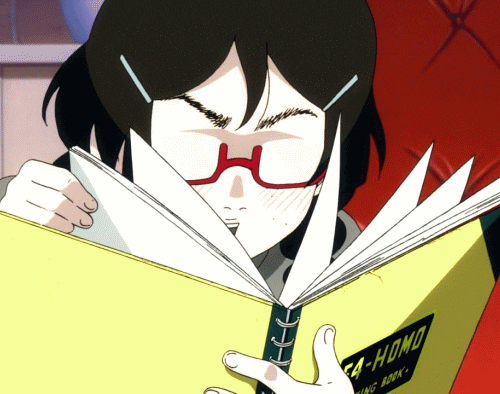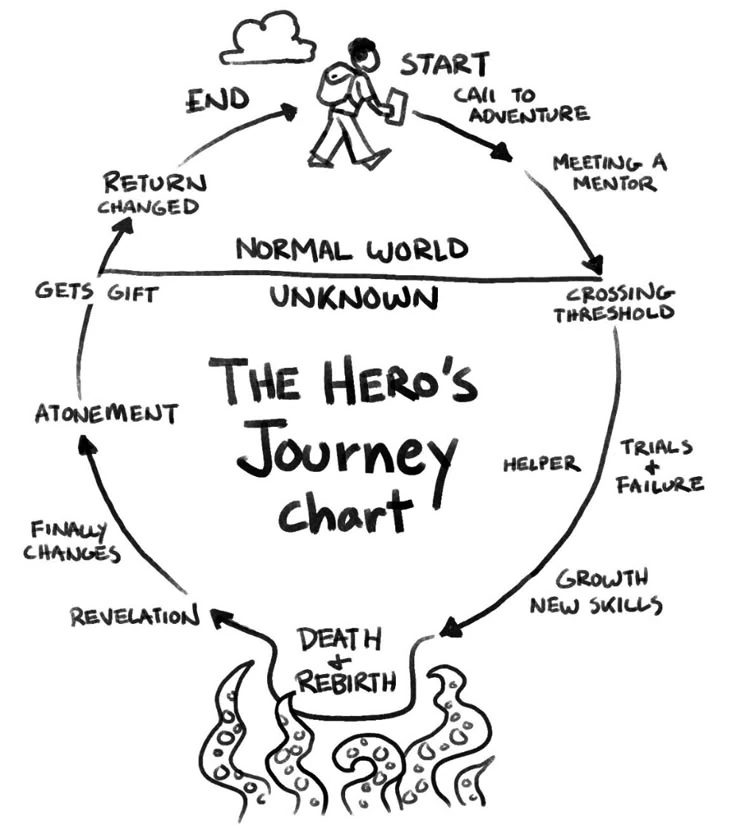Finding Yourself in the Pages: How Literature Becomes a Guide to Self-Discovery
Creating Your Own Education
At sixteen, Kaia Gerber made a bold choice. Instead of heading to college, she moved to New York to pursue modeling. Suddenly, she found herself in rooms full of brilliant, older people having sophisticated conversations—and she felt out of her depth.
Rather than being intimidated by her lack of formal education, she decided to create her own curriculum through books. What started as a mission to appear more intellectual became something much deeper: a journey of self-discovery through literature.
Her story reveals a powerful truth: books don’t just entertain or inform—they become mentors, mirrors, and companions that help us understand ourselves. Through reading, especially works by women writers, Gerber discovered not just knowledge, but wisdom about identity, relationships, and the courage to be authentic.
Breaking Free from “Should” Reading
Moving Beyond the Classics
Gerber’s reading journey began predictably enough. She tackled the books she thought she was “supposed to” read: Camus, Rimbaud, Dostoevsky. These canonical works have their place, but the real transformation happened when she stopped reading to impress others and started reading to connect with herself.
This shift marks a crucial turning point many readers experience—when literature stops being about appearing smart and starts being about understanding yourself. The pressure to read certain books often creates barriers to genuine literary experience. When we treat books like items on a cultural checklist, we miss the deeper magic of finding ourselves in unexpected places.
Following Your Curiosity
True literary connection happens when we stop asking “What should I read?” and start asking “What speaks to me?” This principle transformed Gerber’s relationship with books from obligation to obsession. Over seven years, she dove into hundreds of works by women writers—young, old, queer, American, international—creating a rich collection of voices that became her unofficial advisory board.
This organic approach creates deeper, more lasting impact than any prescribed reading list. When we choose books that genuinely intrigue us, we engage more fully with their ideas, remember their lessons better, and actually apply their insights to our lives.
Literature as Mirror and Mentor
The Moment of Recognition
One of literature’s most powerful gifts is the moment when you see yourself clearly reflected in a character’s story. For Gerber, this happened at eighteen when she encountered Jacaranda in Eve Babitz’s “Sex and Rage.” The protagonist’s complexity resonated deeply: a young woman navigating sophisticated social circles, simultaneously aloof and self-aware, refusing to see herself as a victim despite difficult circumstances.
This identification provided something invaluable: validation that her own complicated feelings and experiences were worth exploring. Literature gives us permission to be complex, contradictory, and imperfect. Through Jacaranda, Gerber learned that protagonists don’t need perfect perspective to be compelling—their lack of complete self-awareness often makes them more relatable and human.
Embracing Beautiful Complications
Gerber’s insight reveals literature’s deeper wisdom: if we knew all the lessons before we learned them, we wouldn’t have the rich, complex experiences that make us who we are. Even painful experiences become “beautiful” in retrospect because they form the pages of our personal story.
This perspective transforms how we view both books and life. Characters who make mistakes, suffer consequences, and struggle with understanding aren’t flawed—they’re authentic representations of the human experience. Literature teaches us that confusion, pain, and uncertainty aren’t obstacles to overcome but essential elements of meaningful existence.
Capturing Feelings with Precision
Literary Snapshots of Emotion
Lydia Davis’s “The Collected Stories” shows literature’s unique ability to capture and crystallize complex emotions in precise, powerful packages. Davis’s range—from sentence-long observations to multi-page explorations—proves that powerful writing isn’t about length but about emotional accuracy.
Her story about the end of a relationship particularly struck Gerber: the recognition that even knowing the pain a relationship would cause, you’d still choose to pursue it. This paradox captures something essential about human nature that psychology might analyze but literature simply presents as truth. We make choices for reasons that go beyond rational cost-benefit analysis, and literature helps us understand and accept this complexity.
Making Sense of Contradictions
The story’s conclusion—that you might be left with nothing but pain and an old t-shirt, but you’d do it again anyway—shows literature’s power to make sense of seemingly contradictory human impulses. This isn’t advice in the traditional sense; it’s recognition and validation of feelings that might otherwise seem irrational.
Literature excels at holding contradictions without resolving them, giving readers permission to embrace their own paradoxes. This emotional honesty creates deeper self-understanding than prescriptive self-help or theoretical analysis.
Reclaiming Female Voices
The Power of Women’s Perspectives
Gerber’s exploration of correspondences between writers like Anaïs Nin and Henry Miller, Jack Gilbert and Linda Gregg, revealed something crucial: the importance of seeing women in relationships from their own perspective. In a culture saturated with female characters filtered through male perception, authentic female voices become acts of revolution.
These letters and literary exchanges provided Gerber with models for maintaining individual identity within relationships. The common fear that women lose themselves in romantic partnerships finds its antidote in literature that shows how whole people can exist within relationships while keeping their distinct voices.
Love as Creative Partnership
The correspondence between Gilbert and Gregg offers a powerful model of relationship as creative collaboration that transcends romance. Their continued creative dialogue after their romantic relationship ended shows that deep connection can evolve and endure in different forms. This literary relationship demonstrates how respect, artistic appreciation, and genuine care can create lasting bonds that enhance rather than diminish individual creative expression.
Nin’s unapologetic erotic correspondence with Miller represents another form of female empowerment: the refusal to minimize authentic expression for social acceptability. Her willingness to “go there” without apology provides a model for embracing all aspects of identity.
Literature as Teacher and Liberator
Demanding Space Rather Than Asking Permission
The women writers Gerber admires—Nin, Gregg, Babitz, Ursula Parrott, Annie Ernaux, bell hooks, Joan Didion—share a crucial characteristic: they demand rather than ask that readers follow them into their complex inner lives. Their works function as statements rather than questions, refusing to apologize for their complexity or make themselves smaller for easier consumption.
This demanding quality teaches readers to expect and create space for their own complexity. When literature presents fully realized female characters who refuse to abandon any part of their identity to be heard, it gives readers permission to embrace their own multifaceted nature.
Self-Validation Through Books
Perhaps literature’s greatest gift is its ability to provide the validation and understanding we often seek from others. Through deep engagement with books, Gerber learned she could give herself the recognition and affirmation she had been seeking externally. Literature became a source of self-confirmation: proof of her intelligence, emotional depth, and capacity for complex thought.
This internal validation proves more reliable and sustainable than external approval. When literature confirms your thoughts, feelings, and experiences as worthy of exploration, it builds unshakeable confidence in your own perceptions and value.
Confronting Fear Through Literary Courage
Keeping the Snake in Sight
Joan Didion‘s philosophy of examination as a tool for diminishing fear connects perfectly with literature’s transformative power. Her metaphor of keeping “the snake in your eye line” so it won’t bite applies to how literature helps us confront difficult truths about ourselves and our world.
By reading about experiences that scare, challenge, or disturb us, we develop courage to face similar situations in our own lives. Literature provides a safe space to explore dangerous emotions, difficult decisions, and complex moral situations without real-world consequences.
Expanding What’s Possible
Literature’s greatest promise is its ability to show us “every possibility, whether real or fantasy.” This comprehensive vision of human experience expands our understanding of what’s possible for our own lives. Through books, we can explore paths we might never take, understand perspectives we might never encounter, and develop empathy for experiences far from our own.
Building Your Library of Self
Gerber’s journey from a sixteen-year-old trying to fit in to a confident young woman who found her voice through literature shows reading’s transformative power. Her experience proves that education doesn’t require traditional institutions—it requires curiosity, commitment, and the courage to follow your authentic interests.
The women writers who became her “companions and advisors” created a literary support system that provided wisdom, validation, and inspiration. Through their voices, she learned to value her own voice, trust her own perceptions, and embrace the full complexity of her identity.
Literature offers us the chance to live multiple lives, explore infinite possibilities, and connect with minds across time and space. Most importantly, it provides a mirror in which we can see ourselves clearly—not as others perceive us, but as we truly are: complex, contradictory, beautiful, and worthy of attention.
In a world that often demands we minimize ourselves for others’ comfort, literature teaches us the radical act of taking up space—on the page and in life. Through reading, we learn that our stories matter, our voices deserve to be heard, and our experiences, however messy or complicated, are worthy of exploration and celebration.
The books we choose become part of us. They shape how we see ourselves and the world. In creating our own literary education, we’re not just learning about others’ stories—we’re discovering and writing our own.



